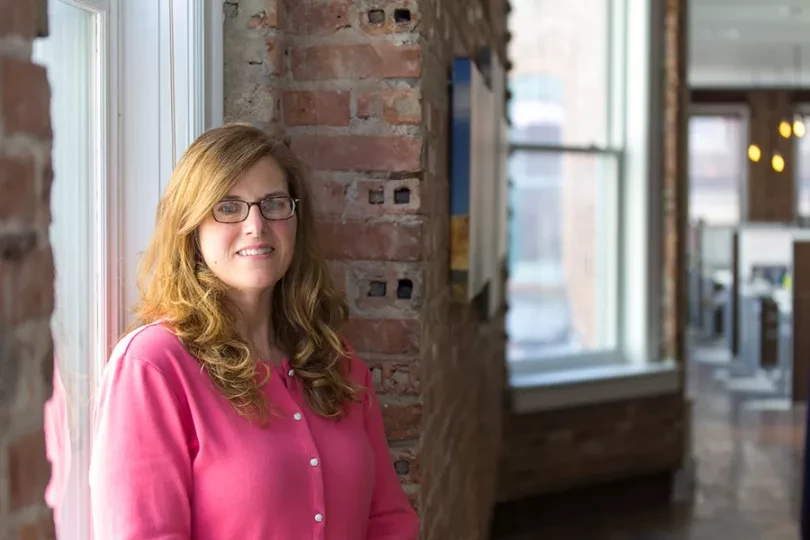Addiction and work: One mother’s story
January 28, 2019

By Kristen Goettsch, Face It TOGETHER Senior Evaluation Scientist
I don’t suffer from addiction myself, but it controlled my life for years. As a loved one, I felt the effects of the disease in profound ways. It severely impacted my mental and physical health, as well as my ability to perform at work.
My son’s addiction affected my day-to-day work for about three years. I was so afraid to lose my job, and too ashamed and scared to talk to anyone about what I was going through.
Loved ones of those with addiction deserve understanding, compassion and, most importantly, effective resources. The disease hurts those close to it, including friends and family members.
When my son’s disease was at its worst, my typical work day was characterized by worry, stress and sleep deprivation. I was constantly making and receiving calls related to my son – I was usually trying to ensure he’d go to school or was talking to any number of officials, from his probation officer to his school principal. All these calls had to be made away from my desk because I didn’t want my employer or coworkers to know what was going on.
During my lunch break, I’d usually run home to see if I could “catch” my son and make him go to school. I’d also go home immediately after work to make sure he was there and alive.
Between all the time I spent making calls, the hours I had to take off to attend meetings related to his educational or legal issues and even just worrying about him during the day, I wasn’t getting enough done. I brought my work home with me all the time to make sure I was performing well enough. Money was extremely tight during this time. Because of his disease, my son’s actions were a severe drain on finances. I couldn’t afford to lose my only source of income, so I would work when I should’ve been resting. If that wasn’t enough to cause sleep deprivation, most nights I slept on an air mattress outside my son’s bedroom door in hopes that I could keep him from sneaking out. I don’t think I got a good night’s sleep for several years.
My time, thoughts and energy were constantly being pulled in two directions: my son and work. I was so, so afraid – afraid of being fired, afraid of being judged as a parent and worst of all, afraid my son would die or harm someone else. It was a devastating cycle for my mental and physical health and undermined my ability to do well at work.
I truly wish I would’ve felt comfortable talking to my coworkers during this difficult time. I found out later that others I worked closely with had either experienced similar issues with their children or were on their own paths to wellness from addiction.
I strongly encourage those who are supporting people with this disease to be honest about their struggles with people they’re close to, including coworkers. Having that understanding from others can help alleviate great amounts of stress. Sharing emotions at work can be very difficult, especially for a female in a male-dominated industry. Tears are often perceived as a sign of weakness.
Employers need to create an environment where employees are encouraged and supported in their vulnerability, instead of focusing solely on production or the bottom line. This will create a more cohesive and dedicated team and will enhance the lives of those dealing with hardships, including addiction.
If you notice anything out of character with a coworker – lack of attention, obvious sleep deprivation, inability to meet deadlines – let them know you’re there to be a non-judgmental listener. More than likely that person is working through an issue outside of the work environment and just needs to know someone cares. It isn’t important that you have all the answers – being there to acknowledge their struggles with empathy is what really matters. Lastly, understand that person may not be ready or willing to share with you at that time. Try to be patient.
(See more tips here.)
The effects of addiction are detrimental and far-reaching. The disease is present in every industry, company and community, but so many people suffer in silence just like I did. Even thinking about those three years is incredibly difficult; it’s hard to relive that pain and fear.
Thankfully, my son and I are in a much healthier place today. However, that wellness didn’t happen overnight or without a lot of work from both of us. It’s critical for loved ones to take care of their own physical, emotional and mental health so they’re strong enough to handle the challenges that come with addiction. If you or a loved one is still struggling, know that you’re not alone and there are resources that can help. Don’t be afraid to reach out.
